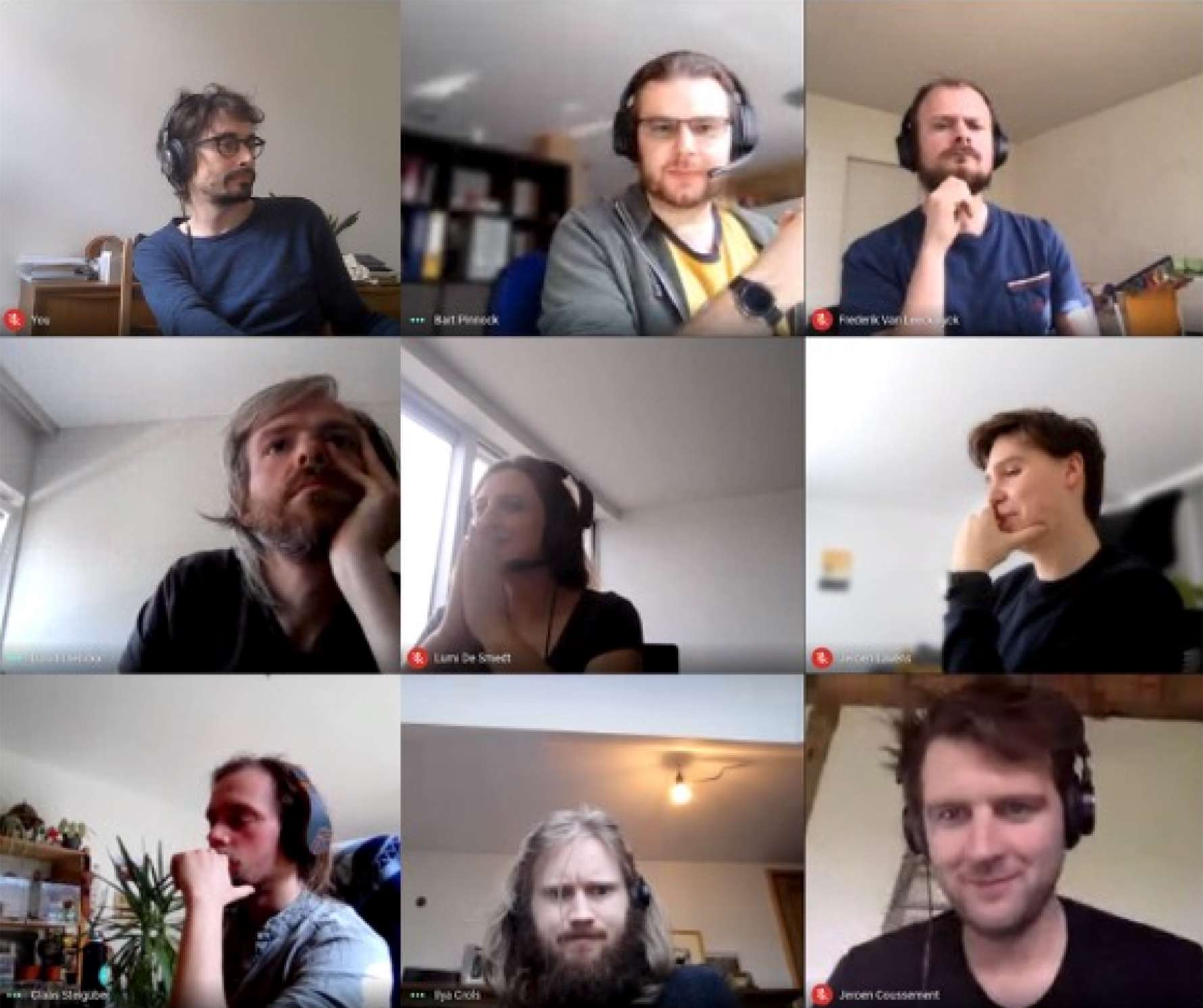Mastering scrum: taking on an advanced approach to product management
Jeroen Coussement on , updated
Along with Factry’s growth came the need for a more advanced software development process. In a series of internal workshops, our designated scrum master is now sharing his knowledge and experience with our team. Find out how we are taking our scrum methodology to the next level.

Over the past two years, Factry has been growing like broadband internet in the 2000s. We couldn’t be more happy to see that businesses in the industrial space are embracing open source technology, and are taking it further every day. Also, in the same brief period of time, our team size grew with exactly 266.67%: from three to eleven people. Bang.
This quick turnaround obviously entailed a number of organisational challenges. In the past, the three company founders, including myself, would still write a lot of code. We were also closely involved in every stage of the reviewing and testing process. Nowadays, duties have shifted more towards managing the process and facilitating the team. A logical step when you are scaling up.
A designated scrum master
In order to further enhance our development process, Bart Pinnock recently joined us as a Technical Project Manager and designated scrum master. With over five years of experience as a project leader in the area of industrial software, Bart is currently taking our existing scrum methodology to new heights through a series of internal workshops.

Who is this guy?
In recent years, tech-savvy Bart has mainly been focusing on the topic of technical project management, thereby mastering scrum and its core concept of product ownership. Through his experience in the development and automation world, a profound knowledge of process optimisation, and an unwavering enthusiasm, he has already proven to be a great asset to our team.
What is scrum again?
Scrum is a lightweight process framework for agile development. It offers a set of simple practices that development teams can use to break down complex problems into manageable chunks and short sprints. Scrum enables teams to make autonomous decisions that they will own up to and do work that they are invested in, creating an environment that is constantly learning and evolving.
Advantages of scrum methodology include:
- higher quality of products
- higher team engagement
- higher user satisfaction
- reduced time to market
- reduced total cost of ownership
What has changed?
As we leverage the DevOps approach, our team is already well acquainted with the best practices of agile development. Yet with each workshop, which is part of a clear process, we are making both small iterations and structural changes to our development workflow based on the scrum methodology. This includes e.g. planning meetings, communication and product ownership.
Shared ownership
In the past, technical questions that came up during the development process often ended up on the plate of the management team. Nowadays, issues are resolved in a more structured way. As before, outlines for features are set in a weekly planning meeting. Yet from that point on, until the review of the sprint in the next week, the team is now jointly responsible for the progress made.
Self-steering teams
Sprint tasks, e.g. developing a set of new features or addressing a series of bug fixes, are no longer assigned to individuals but to self-steering teams. This approach has multiple advantages. As people are often required to take on tasks that go beyond the boundaries of their core expertise, they continue to evolve and learn. In turn, this makes for more multidisciplinary teams.

As product ownership is transferred to more self-steering teams, including responsibility for troubleshooting and testing, the team is now working more independently and collaborating better. People are more in the loop of other people’s tasks, see which features they have been delivering and what issues occured. Therefore, they automatically get more engaged in the process.
What is next?
Within weeks after the first workshop, we are noticing promising results in terms of increased efficiency and smoother operations. In the coming months, we are eager to follow through on this and continue to explore the ins and outs of the scrum methodology. We are convinced that, as we will continue to expand our team, the results of our iterations will become even more visible.
Interested in joining our team?
View our current job opportunities.